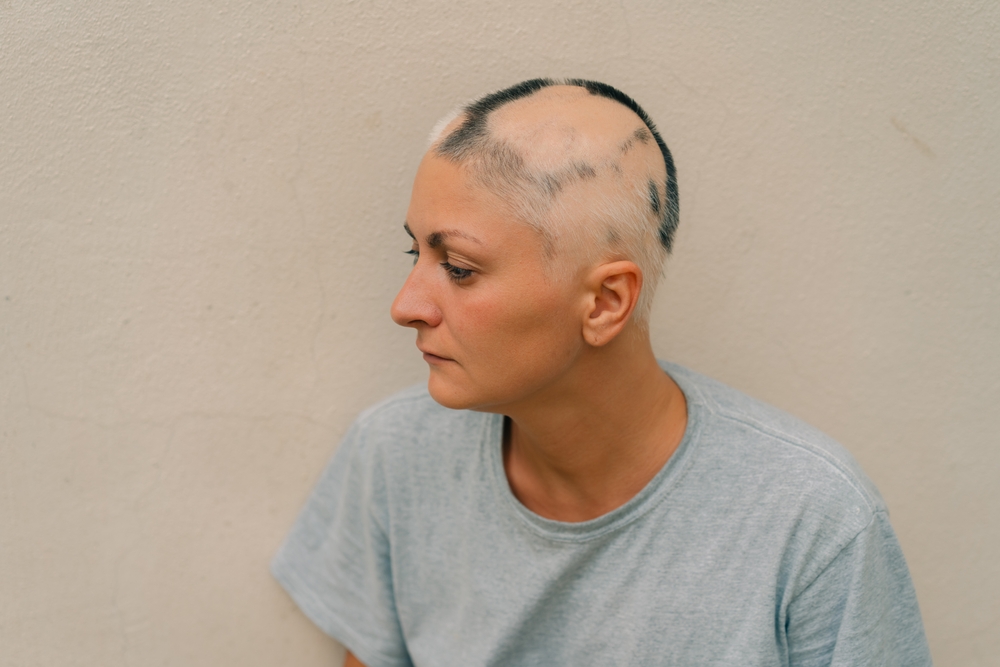Hair loss is a common concern for many, but when it occurs in patches, it can be distressing. Patchy hair loss, also known as alopecia areata, involves sudden, round, smooth bald patches on your scalp, or even on other parts of your body, such as your beard or eyebrows. Understanding the symptoms and causes of this condition can help you seek timely treatment and manage the condition more effectively.
If you suffer from loss of hair, you can consult the best dermatologist in East New York and inquire about its treatments at Doral Health and Wellness Dermatology Center.
Symptoms of Alopecia Areata
The primary symptom of Alopecia Areata is, of course, the appearance of small bald spots. However, the condition can present itself in other subtle ways as well:
- Small, round bald patches – Patches of hair loss are usually the size of a coin and are most often found on your scalp. These patches can expand or multiply over time.
- Changes in the texture of the scalp or skin – The skin in your bald areas is typically smooth and doesn’t show signs of scarring. There is usually no redness, itching, or irritation in these areas.
- Excessive hair shedding – In some cases, you may notice clumps of hair coming out during brushing or showering before bald spots become visible.
- Nail changes – Some individuals with patchy hair loss may notice changes in their nails, such as tiny dents (called pitting), white spots, or brittle, rough nails. Though
- Thinning hair around the patches – While the patches may be stark in their appearance, your surrounding hair may also become thinner, especially if your condition is progressing.
Causes of Alopecia Areata
Alopecia Areata has a few underlying causes, ranging from autoimmune disorders to environmental factors. Some of the most common triggers can include:
- Autoimmune response – Alopecia areata is primarily an autoimmune condition, which means your body’s immune system mistakenly attacks your own hair follicles. This results in the hair falling out in small patches. The exact trigger for this immune response is not yet fully understood, but it is often linked to genetic factors.
- Genetic predisposition – Family history plays a role in the possibility of developing alopecia areata. If a close family member has experienced patchy hair loss or other autoimmune conditions, your risk for developing the same condition may be higher.
- Stress and trauma – While this is not a direct cause, emotional or physical stress can act as a trigger for hair loss. In some cases, high levels of stress may provoke your immune response that leads to hair loss, particularly if you are already prone to autoimmune conditions.
- Hormonal changes – Hormonal shifts, such as those that occur during pregnancy, menopause, or thyroid disorders, can affect your hair growth cycle and may result in patchy hair loss.
- Infections or illness – Some infections, such as scalp ringworm (a fungal infection), can lead to patchy hair loss. Additionally, if you have an underlying illnesses or conditions that affect your immune system, like lupus, you may also experience this form of hair loss.
- Nutritional deficiencies – While not the most common cause, lacking certain vitamins and minerals, such as iron, zinc, and vitamin D, can contribute to hair thinning or loss. These deficiencies weaken the hair shaft and prevent proper hair growth, which may sometimes project as patchy hair loss.
Patchy hair loss can be a distressing experience, but understanding its symptoms and causes can make it easier to manage. While there is no guaranteed cure for alopecia areata, many treatment options can help promote hair regrowth and reduce further hair loss. Early diagnosis and intervention can often make a significant difference in your treatment’s outcome. If you notice any unusual hair loss, it’s important to seek professional guidance to address the issue promptly.
At Doral Health and Wellness Dermatology Center, we treat different types of alopecia symptoms, including loss of hair. Our dermatologists are equipped with the right knowledge and expertise to help you treat and manage your condition. You can visit us at 1797 Pitkin Avenue, Brooklyn, New York, 11212, to schedule an appointment. You can also call us at +1-718-367-2555 or visit our website at https://www.bestbrooklyndermatologist.com.






